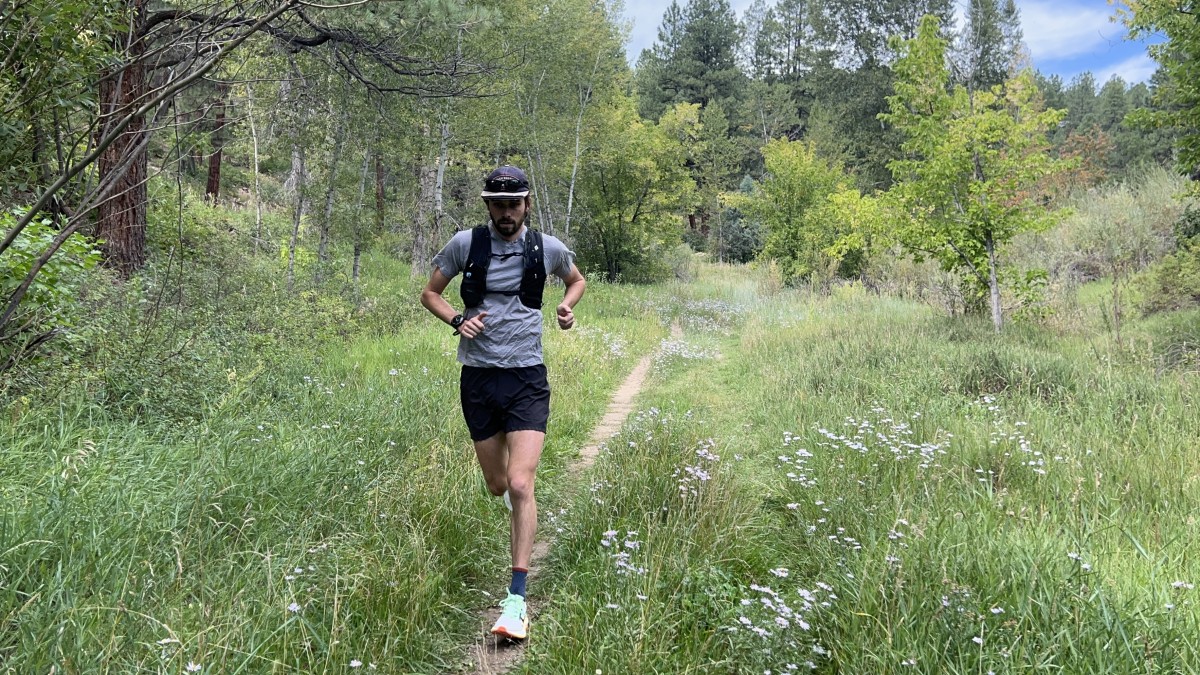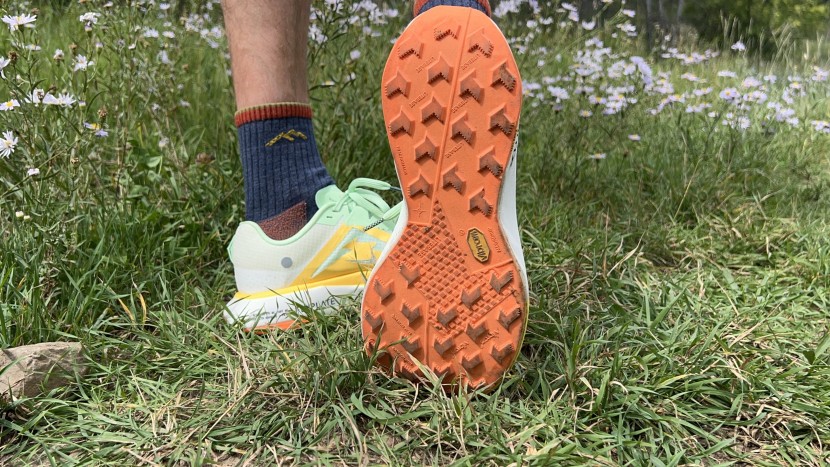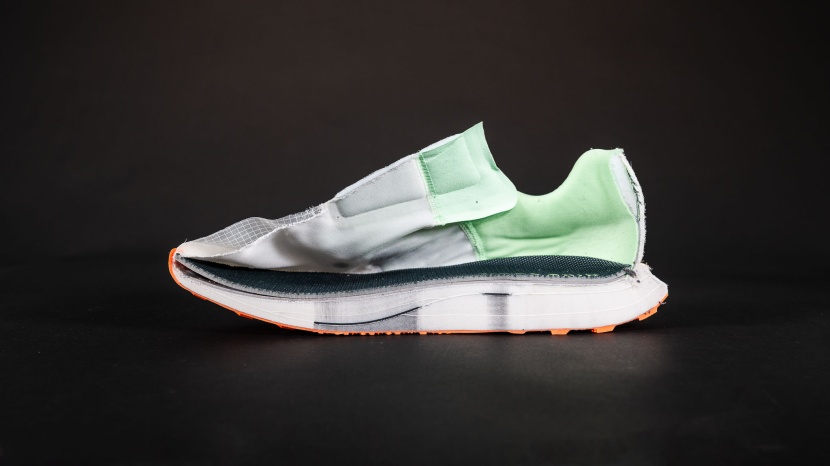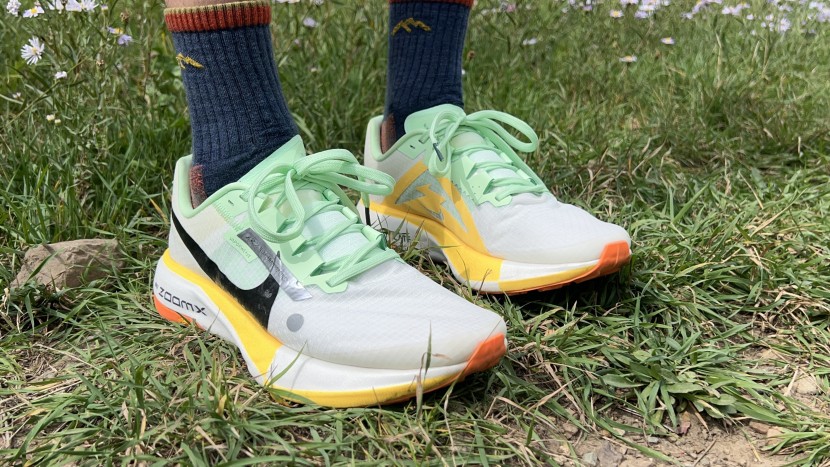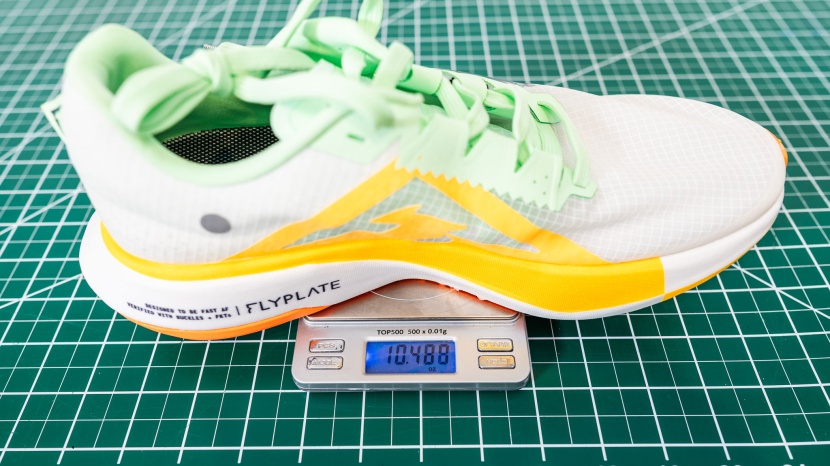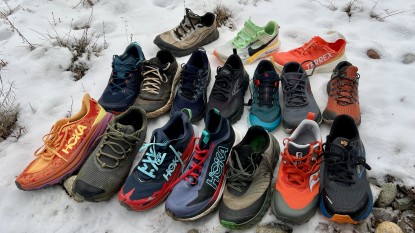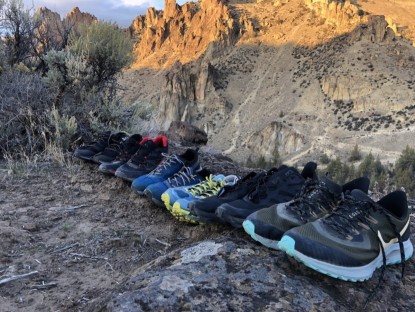Our Verdict
Compare to Similar Products
 This Product
Nike Ultrafly | |||||
|---|---|---|---|---|---|
| Awards | Best Overall Trail Running Shoe for Men | Best Trail Running Shoe with Ultralight Cushioning | Best for Long Distance Trail Runs | Best Value Men's Trail Runners | |
| Price | $260 List | $190 List $142.46 at Backcountry | $195.00 at REI Compare at 2 sellers | $130.00 at REI Compare at 2 sellers | $110 List $109.95 at Amazon |
Overall Score  |
|||||
| Star Rating | |||||
| Bottom Line | If you desire a balance of stiffness and energy out of your carbon Nikes, perhaps these are for you | A perfectly fitting, comfortable, and very protective shoe that just begs to be worn on long run days | With each step you are picking up less than the competition, and for advanced runners the precision and speed are unmatched | This version's upper fit is narrower, which adds more technical performance but may feel tighter than some like | While great in moderate terrain those in technical or loose may opt for something more rugged |
| Rating Categories | Nike Ultrafly | Salomon S/Lab Ultra 3 | Nnormal Kjerag | Hoka Torrent 4 | Brooks Divide 5 |
| Foot Protection (25%) | |||||
| Traction (20%) | |||||
| Sensitivity (15%) | |||||
| Stability (15%) | |||||
| Comfort and Fit (15%) | |||||
| Weight (10%) | |||||
| Specifications | Nike Ultrafly | Salomon S/Lab Ultra 3 | Nnormal Kjerag | Hoka Torrent 4 | Brooks Divide 5 |
| Sizes Available | 6 - 15 US regular | 4 - 13 US regular |
4.5 - 13.5 US regular |
7 - 15 US regular |
7 - 15 US regular |
| Measured Heel Stack Height | 36 mm | 31 mm | 25 mm | 31 mm | 38 mm |
| Measured Heel-to-Toe Drop | 10 mm | 8 mm | 8 mm | 5 mm | 11 mm |
| Rock Plate | Carbon Fiber | No | No | No | No |
| Measured Lug Depth | 2.9 mm | 3.5 mm | 3.0 mm | 4.32 mm | 2.79 mm |
| Measured Weight | 10.50 oz | 10.64 oz | 8.05 oz | 9.40 oz | 10.55 oz |
| Upper | Vaporweave mesh | Matryx Jacquard | Matryx Jacquard | Single layer mesh upper | Mesh |
| Midsole | Zoom X Foam + Fly Plate | Energy Save PU foam with Profeel Film rock protection | EExpure midsole | Foam | Foam |
| Outsole | Vibram MegaGrip and Litebase | Salomon Contagrip MA | Vibram Litebase Megagrip | Rubber | Rubber |
| Heel Tab Type | Tiny pull tab | None | None | Finger Loop | None |
| Claimed Heel-to-Toe Drop | 9 mm | 8 mm | 6 mm | 5 mm | 8 mm |
Our Analysis and Test Results
The Nike Ultrafly, featuring a premium upper, is the most expensive model in our lineup. It's ideal for those seeking the benefits of carbon with a mix of bounce and firmness for trail running. Our tests placed it in the middle of our carbon shoe lineup: less springy than some models but not as firm as others. This balance provides solid comfort for long runs, though it can feel a bit less stable on technical terrain.
Foot Protection
The 36 mm heel stack of the Ultrafly puts a lot of foam between you and the ground; add in a carbon plate, and these shoes provide solid underfoot protection. Our testing showed little underfoot fatigue, even on longer runs, making this a great shoe for ultra-length distances. Some users may find the toe bumper flimsy, but we don't often strike in this area, so it wasn't a huge dealbreaker for us. For more technical terrain where your foot could be sandwiched in between rocks, you probably will want something more beefy. The tongue is well padded, and the lace bite has minimal interaction with the top of your foot. The Ultrafly is designed for easy to moderate trails, so if you plan on being on ridgelines, scree, or talus for extended periods of time, we'd opt for something more substantial.
Traction
We are big fans of Vibram Litebase used in the Ultrafly, and we think it offers the best all-around traction and performance across different types of terrain. Due to its hardness, it is less ideal in wet, rocky conditions. Elsewhere, this blend is pretty perfect, and this hardness does a good job of shedding mud when it's encountered. The measured 2.9 mm lugs provide decent grip on dry trails but lack bite in loose terrain. Directional lugs are meant for consistent and less technical running, so if your course has lots of sharp turns, you may opt for something with either less stack or larger lugs.
Sensitivity
The Ultrafly has less sensitivity than most shoes due to its carbon plate and firm Vibram Litebase. Its large stack puts a lot of foam between you in the ground, limiting ground sensitivity. However, the foam does a good job of compressing, providing adequate sensation on most terrain. For technical scrambling and ridgelines, we'd opt for something firmer, but if you are using the Ultrafly on its intended more moderate runnable terrain, we doubt you'll find an issue with the lack of sensitivity.
Stability
At 4.80 inches, the Nike Ultrafly has one of the widest outsoles of any model in our lineup. This does a great job of contrasting the high heel-toe drop (which we measured at 10 mm!), helping to add better stability. The cushioning, though, reduces the stiffness, which is noticeable when on off-camber terrain. This leads to the shoe feeling less supportive on technical terrain. If you like a locked-in feel or rigidity through the heel, you should opt for more supportive features in a different model. During our testing, we felt the carbon plate provided less stiffness, but the width created a platform that supported our ankles, knees, and hips. Generally, our team prefers subtle stability, letting our muscles do most of the work, and we are impressed with the stability of a model with this high stack. As with any shoe, the model will provide the most stability on its designed surface, so you should plan for the majority of your running to be on smooth or moderate technical trails.
Comfort and Fit
Throughout our testing, we were impressed with the comfort of the cushioning and the easygoing nature of the Ultrafly. While it's marketed as a race shoe by Nike, we found it to lack a bit of stiffness, which reduced some energy transfer. Luckily this makes it incredibly comfortable underneath the foot for many hours. For shorter races, this may be a downside, but for ultra distances, it was clear this is a great option.
The upper is spacious and comfortable, and we didn't experience any blisters or hotspots. If you have a foot with a higher volume, this could be a great option. Our lead tester, Matthew, has a smaller volume foot, and he experienced a bit of excess fabric on the upper forefoot. While this wasn't an issue, it didn't lock down the forefoot quite as well as other uppers. The padded tongue reduced any interference with the laces and provided great heel lockdown. If you're looking for an upper for all-day comfort, consider the Ultrafly.
Weight
At 10.50 ounces per shoe, in size US men's 10.5, the Nike Ultrafly reduces weight by using a super light upper and Vibram Litebase. While not as light as some of the others we tested, the model still feels very fluid when running fast. Nike uses a unique knit blend around the midsole, which claims increased durability without sacrificing the weight of more durable exteriors.
Should You Buy the Nike Ultrafly?
Out of all the carbon models we've tested, this one offers above-average long-distance comfort and a neutral ride. The Ultrafly has good energy transfer and spring without coming across as “stiff.” Its comfortable upper and wide platform provides good stability on moderate terrain, and the neutral rocker platform allows for comfortable hiking ultra distances.
What Other Trail Running Shoes Should You Consider?
If you are looking for even more energy transfer and bounce out of your carbon footwear, check out the Adidas Terrex Agravic Speed Ultra. If you want a model that's even more comfortable, excels in more technical terrain, and has more bite on loose trails, we recommend the Hoka Tecton X 3.


